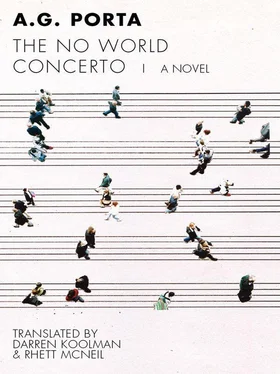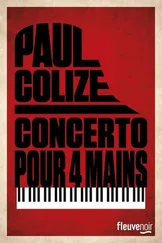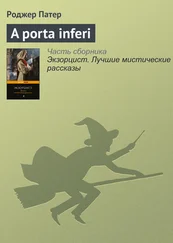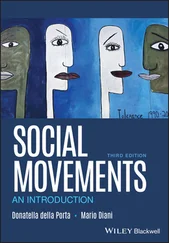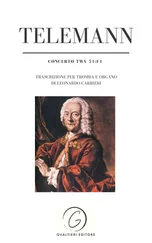The screenwriter works all afternoon but is unable to produce a single line. It’s been years since he’s written a screenplay, and now he’s trying to rediscover his voice. Bewildered, he asks himself what advice he’d give if he were one of his students. He thinks he’d suggest sticking to his guns, not abandoning the idea too soon. It’s quite like the notion of a certain bishop centuries ago who said nothing exists outside the mind. The screenwriter hasn’t done the research, it’s just something he remembers hearing somewhere, and perhaps he has the wording all wrong. His students wouldn’t care about the wording in any case. The point is not to give up on a promising idea too readily. Like twelve-tone music. After all, deep down, it’s just another method, a different approach to musical performance and composition. And, although the screenwriter thinks his method a little erratic, he’d like to achieve similar distinction in his writing. His writing hasn’t always been erratic, but he reassures himself that the change isn’t because of his age. The problem is his current situation. He no longer has the freedom he used to have. The screenwriter grows more anxious with each passing hour, scribbling over and over, supposing twelve-tone music was never invented. But he can’t stop thinking about the girl, whose imminent arrival he nervously anticipates. After dining on some fruit, he opens the windows to rest his feet on the ledge as he finishes his coffee and decides to roll a joint. He notes the evening temperature is pleasantly mild. The lights in the building opposite are going on and off like a switchboard, and although it happens completely at random, the screenwriter watches in amazement, as if something extraordinary was going on, something with purpose and meaning. The effect is hypnotic, soothing: a symphony of color, he’d say, if he wasn’t more interested in catching sight of anything resembling a female figure in one of the windows. Then he looks down at the empty street. Maybe she won’t show up, he thinks. He can’t expect an assignation every night. But he wants to make love to her tonight. He turns off the lamp and watches the play of light and shade on the building across the street, the subtle grayish nuances between them, as his eyes adjust to the room’s obscurity. He sees everything more clearly, but nothing new. And yet, the fresh evening air has a calming effect, so he decides to lie down and have a rest that before long turns into a nap. He wakes up in the middle of the night covered in sweat. He dreamed about the woman in the building across the street. Her light had suddenly come on, and he couldn’t help staring as she drifted naked past the window. He watched and waited for some seconds in case she walked past the window again, but her light went out, and with that, he felt the thread of his story was lost. What a stupid dream, he thinks. It should never have caused him to break out in a sweat. He washes his face then goes to the window and parts the curtains. Although it’s dark, he sees the building clearly, illumined by the lampposts on the streets below and the apartments whose lights are still on. He carefully counts these apartments and notes their position, promising himself to check if the same ones have their lights on every night. But what’s the point? he wonders, knowing how feeble an excuse he’d give: curiosity, something to do for the sake of doing, something to ease his anxiety. Unable to sleep, he decides to call his wife. After waiting for five rings, he hangs up indifferently. Then he asks himself why he agreed to write the screenplay. Money. The word money keeps cropping up. But it makes the world go round, he says aloud while staring at the ceiling. It’s not that he feels incapable of writing the script, but the other characters — those musicians — only matter to him in relation to the girl. He remembers when things were different, when he was young and ambitious, back when he was only starting out as a screenwriter. He reflects on an old cliché: he may have been poor, but at least he was happy; a sad cliché reinforced by the false belief that wealth and security will one day compensate the loss of youth and felicity. The fact is he’s just as poor now as he was back then. Every so often, an old friend will take pity on him and allow him to assist on a project — to revise some greenhorn’s script, or write dialogue for an older character, which a young writer may find difficult or even impossible to do. This tends to happen when a script doesn’t have a single interesting scene. So a producer decides that adding more dialogue should solve the problem. Of course, this is the same as beating a dead pony. As long as the scene’s interesting enough, it doesn’t really matter what the characters are saying. On the other hand, the screenwriter counts himself lucky he still has the strength to write, or at least believes he has, and that his producer friends still have confidence in him. But how could he not have strength to write? He’s a professional, after all. And he acts like a professional too, even when he’s forced to listen to these tedious musical pieces, which lack anything resembling classical harmony and seem to go on interminably. He writes in his notebook: According to the girl, the twelve chromatic intervals into which a scale is divided are used indiscriminately in the atonal system, with no single tone predominating. If he could adapt these ideas to his screenplay, a very different movie could emerge. He goes back to the bed and rests his head on the pillow. Yes, maybe he could create something new, although he suspects practically everything’s been said already. But he may still come away from the project with something interesting to tell his students — if he ever has students again, that is. Is he really interested in the girl’s talent? He can’t deceive himself: besides the screenplay, all he cares about is her body. Or is it her company? Or the hope of a new life?
It’s Wednesday, in the middle of the night. She’s still afraid they’re following her, so the girl drops in on the screenwriter when he least expects it. She reminds him she’s going through a white phase: her wardrobe has only generic white pants and T-shirts. The screenwriter almost forgot this detail. She refuses to wear anything else. Maybe he read it in a previous draft of her novel, or heard it when she read to him from her diary. She says brand-name clothing is a thing of the past for her; she only wears white canvas shoes with the labels and shoelaces removed. She’s shed her regard for fashion and conformity, she says, trying to sound convincing. They don’t matter anymore. She then expresses her concern about her favorite soccer player, who’s taken an extended vacation and will miss the next big game. The screenwriter feigns his surprise, for he’s already read about it in the newspaper. It’s been a long time since she last kicked a ball herself. Soccer’s one of many hobbies she sacrificed for the sake of her music and for writing. Schools for gifted kids tend to encourage their students to discriminate between subjects that are worthy of study and those they deem to be trivial. Nevertheless, the girl never stopped supporting her favorite soccer team. What would you do if you were his coach? she asks the screenwriter. He knows he’d have fired him, but he doesn’t dare say it. Instead, he dodges the question by asking her what she thinks her father would do. She mulls it over. Why are you interested in my father? There’s something intriguing about him, he says. She smiles. But who is my father? she wonders as he watches her expectantly. My father is someone whose business dealings have made him very rich in a very short space of time, someone who never takes time off, except for a few days here and there during the course of a year. But she has no idea what he does with his time, what his line of work is. No one does. Like her, he wanted to be a writer when he was younger, but he didn’t have the conviction, the perseverance necessary to become one in the end. On the other hand, he shows enormous dedication when it comes to reading that great swan song of nineteenth-century fiction, a book written by a novelist and cartographer of memory who turned jealousy into an aesthetic of stolen time. This is one of the reasons she has no qualms about telling her father she wants to be a writer, she says, although the screenwriter knows she’d hardly have any trouble telling the whole world. And yet, he’s the very model of an absentee father. Her mother’s the same, despite being the one who takes care of her. The girl knows her mother would rather take care of a successful company. But as for her father: he takes little interest in his daughter’s life, especially since the separation, and he only follows her career as a pianist from a distance. He still frequently asks about her training for the soccer team, as if every time he receives the same answer, he cheerfully eradicates it from his memory. A light goes on across the street; the screenwriter can’t help glancing over. A naked woman passes by a window. He’s afraid of losing the thread of the girl’s story, but he keeps looking in case she walks past again. She doesn’t, and the light goes off. From his spot next to the writing desk, he watches the girl stretched out on one of the two beds — naked, her eyes closed, talking to him as if she was orating, as if she was reciting a passage from her book, a book she’s unable to write. Isn’t he worried about who you might be sleeping with? the screenwriter asks insistently. No, he doesn’t care about that. He doesn’t care about his daughter falling into the arms of an unscrupulous roué, the screenwriter muses. But all fathers should be worried about this. After all, the world’s filled with those kinds of people.
Читать дальше
